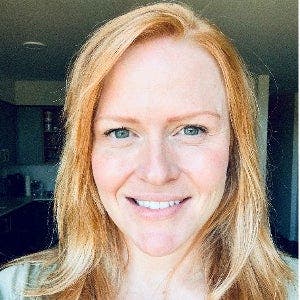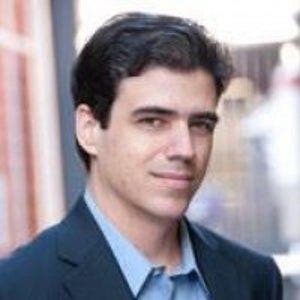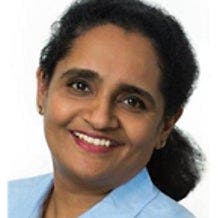How nontraditional backgrounds drive successful security teams forward

Image source: Adobe Stock/Alex.
In today’s ever-changing world, security professionals need to be agile and quickly adapt to a variety of situations — especially as the industry shifts to more innovative ways of working, involving complex, interconnected technologies.
Cybersecurity professionals have been in high demand for many years — and that demand will soon be at an all-time high. According to (ISC)2, there is a cybersecurity workforce gap of over 4 million people globally, meaning the workforce needs to grow by 145 percent to help close that gap. While companies and governments are working hard to address this gap, there are virtually no limits to the persistence of adversaries — demonstrating the need to not only recruit talented professionals into the field but also encourage and cultivate creativity and innovation within the cybersecurity workforce as well.
One important aspect to think about is how “non-traditional” security backgrounds and professionals not only possess technical competencies but also potential soft skills that can give teams a unique, competitive edge. These unique candidates can inject distinct perspectives and creative problem-solving skills to help teams stay ahead of the ever-evolving threat landscape. Keeping this in mind when building teams is imperative to setting up an organization for success.
Through our Adobe For All vision, we believe that when people feel appreciated and included, they can be more creative, innovative, and successful. We pride ourselves on having a diverse set of backgrounds that make up our company culture. We make it a priority to identify candidates that not only hold the technical skills needed for a position, but who also come from non-traditional backgrounds as well. People with these different perspectives often develop distinctive problem-solving or communications strategies that are unconventional, tenacious, and can help to further bolster the team and company overall. For example, our Adobe Digital Academy, which is a program in place to further our commitment to fostering a diverse and inclusive workforce, is all about reskilling and upskilling the creative community through modern apprenticeships. It’s a way to get people from non-traditional backgrounds into technology.
Beyond just hiring, we invest in efforts to collaborate with organizations that make long-lasting change. For example, we’ve worked with The Prelude Institute, which champions cybersecurity careers to diverse background through a six-month, full-time education program for non-traditional students. We collaborated with the Prelude Institute to help them refine curriculum and provide access to mentors from members of the Adobe security team. Allowing cybersecurity learning to be more accessible to others of different backgrounds helps open opportunities to those who may not have had the ability before, therefore helping diversify the field even more.
Employees are of the utmost importance at Adobe and are the foundation behind shaping our security posture. Whether they’re experts in their field or just passionate about learning new skills, they set us up for continued success. We’re lucky to be able to showcase a few of these exemplary employees on our security team that pursued unconventional degrees or experiences that may be unexpectedly complementary to security roles.
Here are a few of the Adobe security professionals who shared their journey to their current role, and how their non-traditional backgrounds have been integral to the work they do.
Melissa Burns is an information security analyst at Adobe who received a bachelor of arts degree in communications and journalism. She started her career working fulltime as a multi-media specialist at a production company. During that time, she volunteered teaching computer classes to senior citizens at her local library — and shortly after, joined the Peace Corps, where she taught students on a small island with limited internet and unstable power. With little to no resources available, she had to teach herself how to fix computers and troubleshoot to ensure her students passed their yearly exams. This experience sparked a passion for working with computers and gave her the background needed for an entry-level IT support specialist position, once she returned home — ultimately, leading her to a career in information security.

"When I look back at my experience, I recognize specific skills or events that have shaped me into the kind of employee I am today. Now, when faced with a daunting challenge in my current role, I often think about my past challenges – switching careers, pursuing a graduate degree with no formal technical education, and feeling anxious about teaching cybersecurity to cybersecurity professionals. I always tell myself, 'You've got this.'"
Melissa Burns, Information Security Analyst
Peleus Uhley double majored in drama and computer science in college. He has utilized his theater degree in much of his work today, taking on different characters — whether it’s an attacker or product manager or end-user — to understand their perspective and design successful and more secure systems. What’s more, his creative background has also allowed him to better cater and communicate with various teams at Adobe in visually explaining and educating those who may not have a technical security background.

“The goal of the arts is the communication of ideas to a wide group of people. It is human nature to think about problems within the context of your own community. This can result in the technology industry designing solutions that are optimized for the technology community. By actively working in both the engineering and arts, I am exposed to a wider community of people with whom I have to collaborate. This is a constant reminder that the solutions we create need to be accessible to more than just the technology community who study this field for a living and likely have easy access to the latest hardware. My training in the arts helps me to think more broadly about the ways to communicate our solutions and the wide audience of people who will need to adopt them."
Peleus Uhley, Principal Scientist, Lead Security Strategist
Sandhya Narayan is a finance and marketing major with previous experience in corporate audit and high-tech product marketing. Through her finance and auditing experience she can relate to compliance-related requirements, while her product marketing background allows her to understand the complexity and timeliness of a product release. Narayan’s background allows her to bring a unique perspective and effectively communicate the urgency and importance of a security task.

“In my first security role, I managed the secure product lifecycle program, and one of the key elements was driving the adoption of a product security tool. Several of my predecessors had taken a prescriptive approach with product teams regarding the tool onboarding and were unsuccessful. Coming from product marketing, I knew that success meant for us to stay flexible, agile, and listen to our customers, in this case the product teams. In using this approach, we were able to successfully roll out the program globally, resulting in stronger partnership and better engagement with product and service teams. In security, I truly believe the more varied the background and skills, the greater their ability to think outside the box to help unravel or even close huge security gaps.”
Sandhya Narayan, Senior Technical Program Manager
Expanding hiring criteria for security
While hiring for security can often be focused on technical expertise, security and HR teams shouldn’t overlook potential candidates who have unique backgrounds that might not seem as applicable at first glance. Diverse candidates, provided they have a passion for the security topic, can often gain technical expertise needed through experience and provide creative problem-solving skills that can’t be learned through strictly education or technical work. Candidates with these unconventional backgrounds further demonstrate that they are willing to go outside their comfort zone and learn skills to grow, making them the ideal candidate for security teams. Examining internal practices is essential to continued learning, while also looking for potential candidates through different channels such as extended educational programs.